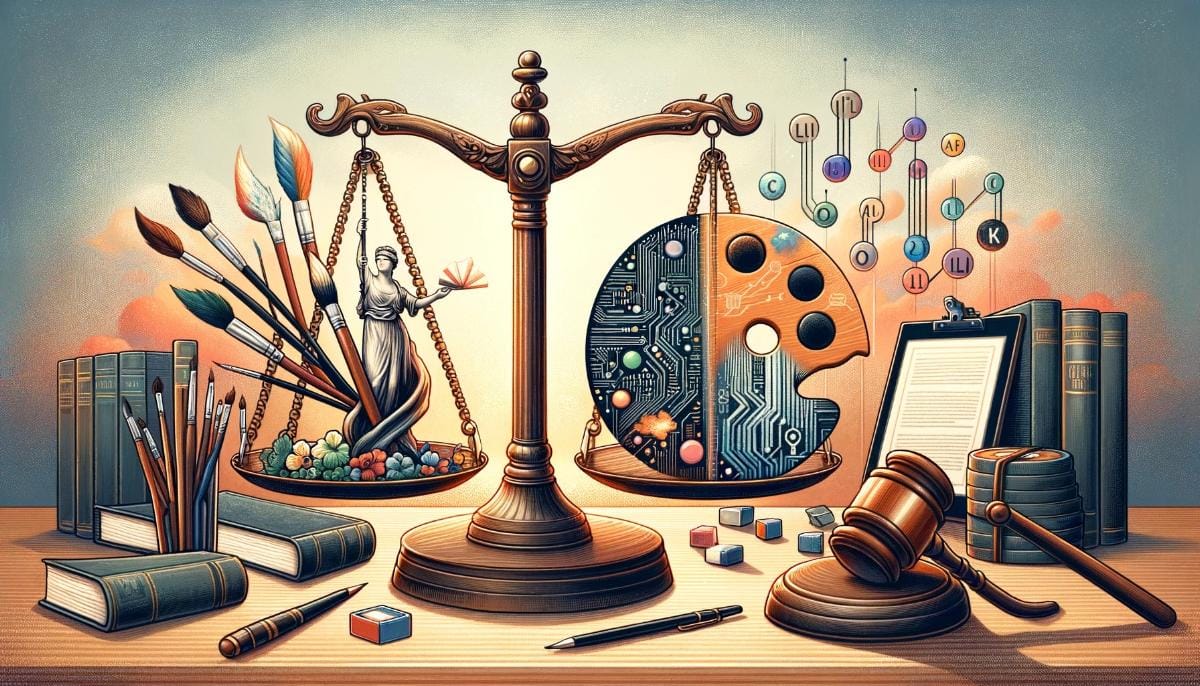Proposed Legislation: the Generative AI Copyright Disclosure Act of 2024

AI and Copyright are all over legal news right now and it seems that everyone is waiting to find out how the law will adapt to generative AI. It's no surprise that Congress has taken note and that new legislation has been proposed to confront the issue, especially when the bill is being sponsored by Representative Adam Schiff (D-Calif.). Let's take a quick look at some legislative context and the proposed requirements of this bill.

Why does this bill matter?
It's important to note that this bill is not the first proposal to address AI concerns. Representative Ritchie Torres (D-NY) sponsored the AI Disclosure Act of 2023 on June 5th of last year. His bill proposes a requirement for disclaimers to be added to generative AI outputs and was submitted to the Subcommittee on Innovation, Data, and Commerce on June 9th, 2023 by the House, but has since stalled.
This new, 2024 bill goes much further than a simple disclaimer, however, and has garnered several headlines since its submission on April 9th. Representative Schiff's official press release for the bill touts support from some heavy hitters in various areas of the entertainment industry including the Recording Industry Association of America, the Directors Guild of America, SAG-AFTRA, the Writers Guild of America (east and west), Professional Photographers of America, ASCAP, and more. The reader may recognize a few of these associations from the national strikes that plagued Hollywood productivity last year.
On that note, let's take a second look at where Rep. Schiff is from and what he's been up to lately in Washington. Mr. Schiff is currently duking it out with his opponent, Steve Garvey (Republican), for the late Senator Dianne Feinstein's seat in the Senate after the two candidates came out of the California March primaries as top competitors. Rep. Schiff's candidacy begs the question as to whether this behavior is his zealous support for the industry or a bid to curry favor for the upcoming election. We will leave the reader to draw their own conclusions.

What does the Act propose to do?
The premise of the bill involves full disclosure of data sets used to train generative AI models. This means that the person or company training the AI would need to provide a full list of sources and maintain that list with updates as needed. They would then be required to provide a publicly available URL for tracking and verification no later than thirty (30) days before the AI is made available to consumers (or 30 days after the Act would take effect for models already available).
The bill also creates penalties for failing to comply. The current language places a fine of no less than $5,000 per occurrence. This means that producers of generative AI could shell out even more than this amount for noncompliance, depending on regulations by the Register of Copyrights and any subsequent rulings. The Register will have 180 calendar days after the proposed Act comes into effect to draft and release these rules and regulations.

What kind of impact could this have?
There are two major industries that are inherently interested in where this bill and others like it will go. While the entertainment industry is obviously concerned with its ability to derive royalties from the use of its copyright holdings, the tech industry would generally be opposed to something like this rolling out at scale as it would bog down production. The bill could bolster a flagging industry for artists by increasing income to a more livable wage but assuredly increases risk for startups and big tech focusing on generative AI.
As attorneys who service clients from both industries, we at Promise Legal will be watching with keen interest. Subscribe to follow us for more legal news content and track our reactions to this bill and others like it.

